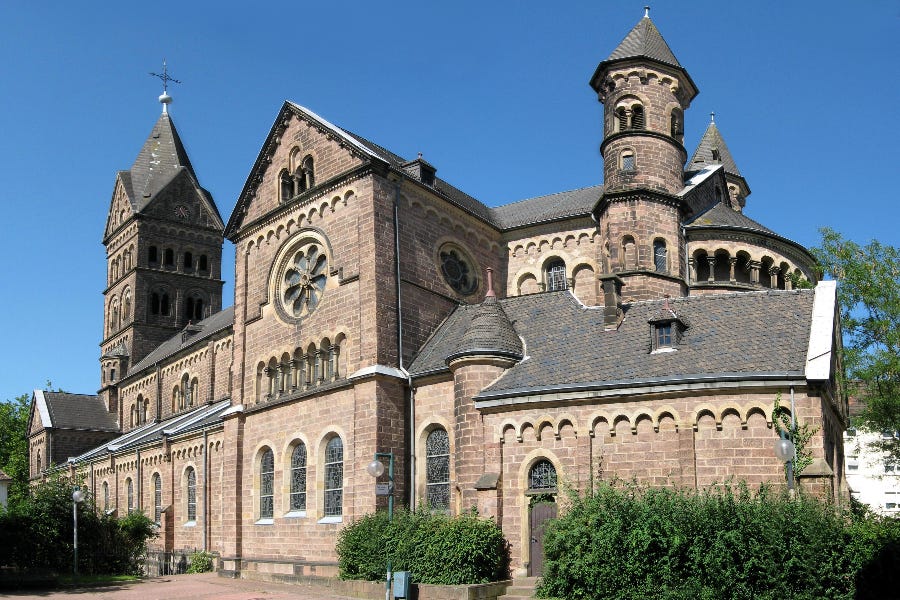Losses on the controversial real estate investment are the Vatican’s own fault, the investment manager who sold the Vatican the building at 60 Sloane Avenue told the Vatican City’s criminal court on Monday.
Raffaele Mincione appeared before judges for the first time in the Vatican’s financial crimes trial, which began last July, when he was one of ten people indicted by prosecutors after a two-year investigation into the Secretariat of State’s financial dealings.
After appearing in court June 6, Mincione released a statement which claim that when the Vatican allowed development authorization on the property to lapse, while at the same time making the investment the center of an international scandal, the Vatican had damaged its own financial interests. Mincione also complained that the Holy See had kept the details of its investments with him classified while accusing him of running a “scam.”
Mincione told the court that his reputation as a finance and investment manager has been unjustly harmed by the Vatican investigation and prosecution, and he has been “insulted during the [legal] proceedings and flayed in the newspapers as a criminal."
Mincione has repeatedly asserted that he acted in good faith in all his dealings with the Holy See and has brought legal claims against the Vatican’s actions against him both in the UK and Switzerland. Mincione has also issued lawsuits against various media outlets for libel over their reporting of his business dealings.
Mincione’s relationship with the Secretariat of State dates back to 2014, when the curial department, under the direction of then-Archbishop Angelo Becciu, invested some 200 million euros in Mincione’s Athena Global Opportunities Fund. Previous reporting has established that the Vatican investment came from lines of credit extended by two Swiss banks, BSI and Credit Suisse, against other Vatican funds held on deposit.
Mincione invested Vatican funds in a 45% stake in the London building, which was owned by another of his companies, as well as in other ventures owned by or connected to him.
After Becciu’s departure from the secretariat in 2018, the Holy See separated itself from Mincione, incurring steep financial penalties for early withdrawal of its investments. Mincione said Monday that had the Vatican seen out the term of their original investment until 2021, their returns would have been “very positive.”
Under the terms of the separation agreement, the Secretariat of State purchased the remaining share of the London building, gave up its remaining investment in the Athena Global Opportunities Fund, and reportedly paid an additional 40 million euros to Mincione through Athena, and assumed a 150 million euro mortgage on the property. The building was then sold for a loss of more than 100 million euros.
Mincione also told the court that the Vatican understood the terms of the Athena Global Opportunities Fund at the time it invested in it, and that he had balanced the fund’s investment portfolio to minimize risk.
Previous reporting has demonstrated that Mincione invested millions of Vatican funds into his own companies and speculative investment projects, including the London building, which he owned through a series of nesting holding companies in the Channel Islands.
Mincione said Monday that he had full discretion to determine how the find made investments and that did not “have to give an account to the Secretariat of State” or “explain the investments.”
At the centre of the Vatican trial, and the charges against Mincione, is his relationship with Gianluigi Torzi, the broker appointed by the Secretariat of State to complete the purchase of the London building from Mincione on their behalf.
In the process of conveying ownership of the building to the Vatican, Torzi created a separate, controlling, minority class of shares in the holding company which owned the building — passing the majority non-voting shares to the Vatican but retaining the controlling shares and with it effective control of the building. Torzi is accused of then blackmailing the Holy See for more than 10 million euros for control of their own building. In the current trial, he faces charges of a range of financial crimes, including money laundering and extortion.
Although Mincione has in the past downplayed his relationship with Torzi, describing them simply as “two Italians living in London,” in court on Monday he conceded that Torzi was “a person I knew and with whom I had made some deals before,” but insisted that he played no role in recommending him to the Vatican to represent their interests and that he was “a complete stranger" to “all the subsequent events between Torzi and the Secretariat of State.”
The Pillar has previously reported that during the period of years the Secretariat of State invested in the Athena Global Opportunities Fund, Mincione invested Vatican money in debt products marketed by Torzi, some with links to mafia-affiliated companies. Mincione invested Vatican money into one such debt product called Sierra One bond,
Torzi, in turn, used his companies to lend Mincione tens of millions of euros during the same period.
Mincione told the court that it was only after he was told that Torzi had been deputized by the Secretariat of State that he discovered his involvement in the project, saying that Torzi had “for years” had an interest in the London building project.
“[Torzi said] he would be the new manager of the real estate project,” Mincione told the court. “He also told me that if I did not agree to sell the property, the Vatican would create many problems for me.”
The Vatican investigation which lead to the current trial followed complaints from the leadership of a Vatican bank, the Institute for Works of Religion (IOR), after the Secretariat of State, including the Cardinal Secretary, Pietro Parolin, and Becciu’s successor as sostituo, Archbishop Edgar Peña Parra, attempted to pressure the bank into approving a loan to refinance the mortgage.
In June 2020, while that investigation was still underway, Mincione petitioned the High Court of England and Wales for declaratory relief against the Secretariat of State, asking judges to rule he "acted in good faith” in his dealings with the Vatican. That same month, official Vatican media described Mincione’s management of investments for the Secretariat of State as “speculative” and a “conflict of interest.” Lawyers for Mincione argued that the Holy See was seeking to nullify the sale of the building at 60 Sloane Ave.
A Swiss court recently also dismissed an appeal by Mincione against financial authorities in that country, who acted to seize bank accounts and assets belonging to Mincione totaling as much as 60 million euros. The funds were seized in 2021 in response to a request from Vatican authorities.
Mincione’s appearance in court Monday follows an appearance last week by Fabrizio Tiribassi, a former lay official at the Secretariat of State responsible for the administration of the department’s financial affairs, and Enrico Crasso, a former investment manager for the secretariat. Both men are also accused of financial crimes in the trial.
The court heard from Tiribassi that the decision to invest with Mincione was decided on “abruptly” as an alternative to a proposal to a plan for the Vatican to invest in oil prospecting Angola, a plan presented through Cardinal Becciu who formerly served as apostolic nuncio to that country.
In submissions to a UK court, published in 2021, Torzi accused of Crasso and Tiribassi of offering him prostitutes and threatening his family during the completion of the London property deal.



